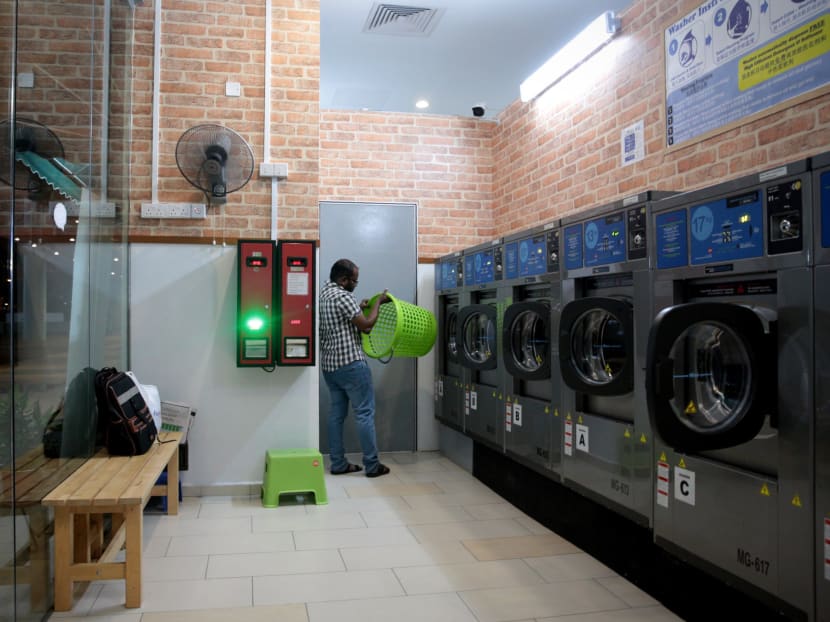Businesses say they will take water price hike in their stride
SINGAPORE — When Finance Minister Heng Swee Keat announced on Monday (Feb 20) that water prices would go up by 30 per cent, the news did not give laundromat chain founder Tan Tiong Peng a “heart attack” — thanks to his decision to invest in water-efficient machines when he started the business in 2010.
SINGAPORE — When Finance Minister Heng Swee Keat announced on Monday (Feb 20) that water prices would go up by 30 per cent, the news did not give laundromat chain founder Tan Tiong Peng a “heart attack” — thanks to his decision to invest in water-efficient machines when he started the business in 2010.
Like other businesses interviewed on Tuesday, Mr Tan felt the quantum of increase was “big” and would add to the cost of operations. But despite higher water prices, the businesses said workers’ salaries, electricity and rental costs form a much greater bulk of their costs.
If they do pass on the costs to customers, water prices would not be the sole factor, some said.
“It would be to defray escalating costs of rental, workers’ salaries, gas and water,” said Mr Tan, whose Wonder Wash and SQ Laundromat brands have close to 70 self-service outlets including franchises.
Water-efficient washing machines use up to 40 per cent less water than ordinary machines, and Mr Tan said water currently amounts to about 2.5 per cent of his company’s revenue. In contrast, rentals amount to 40 to 50 per cent of revenue.
“It didn’t give me a heart attack when the minister announced it. If it was for rentals, I might have (had one),” quipped Mr Tan.
He added that he “fully understood the rationale”. In his Budget statement, Mr Heng had said water sufficiency is a matter of national survival and prices have to reflect the fact that Singapore is deriving more of its supply from NEWater and desalinated water.
Water prices will go up by 30 per cent for domestic users by July next year, and a partial increase will take effect on July 1 this year. From S$2.10 per cubic metre, domestic users will pay S$2.39 from July 1, and S$2.74 a year later. Households that use more than 40 cubic metres per month will pay more.
The average Housing and Development Board household will pay about S$1 less to S$11 more per month after additional U-Save rebates.
For non-domestic users, prices will go up by 27 per cent, from S$2.15 per cubic metre to S$2.74 next July.
For Laundry Loft director Kevin Soh, water makes up about 10 per cent of operating costs but he has no plans at the moment to pass the increase on to customers.
The shop opened last March at Big Box in Jurong East and Mr Soh said he began exploring ways to optimise the use of gas for the water heater late last year, after realising it was boiling water unnecessarily at times. He has identified a solution and will be modifying the system soon. “We hope to cut gas costs by 20 to 30 per cent,” said Mr Soh.
Other businesses are hoping for enough rain and pressing on with efforts to save water.
A spokesperson from Island Landscape and Nursery said it collects rainwater in a pond, which it uses to water the plants. Water is needed for daily use but forms a smaller part of its costs than labour and electricity, she said.
Royal Plaza on Scotts encourages guests to re-use towels and linen if they are staying at the hotel for more than a night. It signed up last year for a water efficiency management plan by national water agency PUB. Sub-meters have been installed in various areas to monitor water usage and checks are done to ensure there is no leakage.
The hotel cut water usage by 13 per cent last year compared to 2015, said general manager Patrick Fiat. The 390 cubic metres of water consumed daily includes potable water for guests and NEWater for its plantroom.
“The higher cost of operations may lead to a price adjustment. However, the impact will not be immediate as price positioning is dependent on a variety of factors such as the market environment and economy,” said Mr Fiat.
Hawkers told TODAY they would try to cut usage by not leaving taps running and by reusing water to clean dirty floors, but some felt it was not possible.
“We don’t think we’ll be able to save a lot of water,” said Adam Road food centre Western food stall worker Lim Siew Leng. “Everything we need to wash…so we would have to raise the price if necessary.”
Domestic users also said they would try to save water. Manager Betty Lim, 34, whose household consists of eight adults and three children, said she would encourage the children not to take long showers, and might switch to more water-efficient taps and washing machine.
Mother-of-two Wyoen Yin, 37, said she would use water from the washing machine to clean the toilet or to wash the car.







